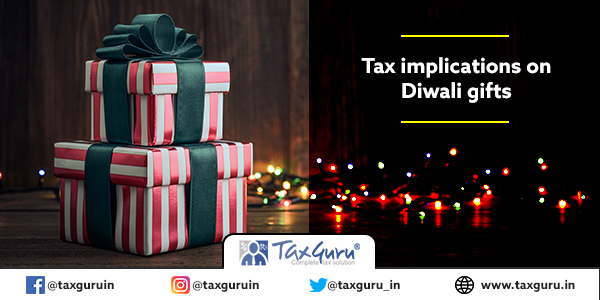Introduction: Diwali, the festival of lights, carries with it the tradition of gifting, and these exchanges of goodwill can often raise questions about taxation. Understanding the provisions of gift tax during Diwali is crucial to ensure that your generosity doesn’t come with unexpected tax burdens. In this comprehensive guide, we will unravel the complexities of Diwali gift tax provisions in India.
Detailed Analysis:
1. Taxation of Gifts from Relatives: Under the Income Tax Act, gifts received from relatives during Diwali are typically fully exempt from taxation. The term “relative” is defined expansively, encompassing immediate family members such as your spouse, siblings, parents, and even your spouse’s relatives. As a result, gifts exchanged with these close family members won’t trigger any tax liability.
However, there is a threshold to consider. If the value of gifts received from non-relatives during Diwali exceeds Rs. 50,000, these gifts fall under the category of “Income from other sources” and become subject to taxation.
The term “relative” in taxation terms includes a comprehensive list of relationships that are considered close family connections. These relationships encompass various individuals who are closely related to the taxpayer. The definition of “relative” typically includes the following for Taxation of Gifts:
i. The individual’s spouse: This refers to the legal husband or wife of the taxpayer.
ii. The individual’s brother or sister: Siblings of the taxpayer are included within the definition of relatives.
iii. The individual’s spouse’s brother or sister: This extends the definition to the siblings of the taxpayer’s spouse.
iv. Brother or sister of either of the individual’s parents: This covers the aunts and uncles on either the maternal or paternal side of the taxpayer’s family.
v. Any individual’s lineal ascendant or descendant: This includes parents, grandparents, children, and grandchildren of the taxpayer.
vi. Any lineal descendant or ascendant of the individual’s spouse: This comprises the parents, grandparents, children, and grandchildren of the taxpayer’s spouse.
vii. The spouse of the individual mentioned in items (2) to (6): This accounts for the husband or wife of the siblings, parents, and grandparents of the taxpayer and their spouse.
2. Special Occasions and Exemptions: In the realm of gift taxation, certain special occasions and circumstances grant gifts tax-free status, irrespective of the giver’s relationship with the recipient. These exceptions include:
a.  : Gifts received during weddings are usually tax-exempt.
: Gifts received during weddings are usually tax-exempt.
b. Gifts received according to a Will: Gifts received through a Will or testamentary bequests are exempt from gift tax.
c. Gifts received by way of inheritance or in contemplation of the payer’s death: Gifts received through inheritance or in anticipation of the giver’s demise are tax-free.
d. Gifts received from the local administration: Gifts from local authorities are generally not subject to gift tax.
e. Gifts received from any educational institution under Section 10 (23): Gifts from educational institutions qualifying under Section 10 (23) are exempt from gift tax.
f. Gifts received from a charitable organization: Gifts received from registered charitable organizations are usually tax-free.
Therefore, if you receive gifts from non-relatives during Diwali, except for the scenarios mentioned above, and the value of these gifts surpasses Rs. 50,000, they become liable for taxation.
3. Assets Subject to Gift Tax: When it comes to determining which assets are subject to gift taxation, the following assets are taken into account:
a. Shares and Securities: Transfers of shares and securities fall within the purview of gift tax provisions.
b. Jewellery: Gifting or receiving jewellery can have tax implications.
c. Archaeological Collections: Ancient artifacts and archaeological collections are considered in gift taxation.
d. Drawings, Paintings, Sculptures, and Artworks: Artworks are taxable assets under gift tax provisions.
e. Bullion: Gifting or receiving bullion is also subject to taxation.
To simplify, gifts of assets other than those listed above won’t be taxed, even if their value exceeds the Rs. 50,000 threshold. However, receiving monetary consideration exceeding Rs. 50,000 or immovable property worth more than Rs. 50,000 will indeed be subject to gift tax.
Conclusion:
As Diwali approaches and you prepare for the exchange of gifts, it’s imperative to be well-versed in the tax provisions surrounding these exchanges. Gifts from relatives are typically tax-exempt, but those from non-relatives exceeding Rs. 50,000 may incur taxation, unless specific exceptions apply.
Knowledge of these regulations ensures that you can celebrate Diwali with peace of mind, knowing that your gifts of love and prosperity align with legal tax provisions. Enjoy your festive celebrations, and may they be filled with joy and financial clarity!





